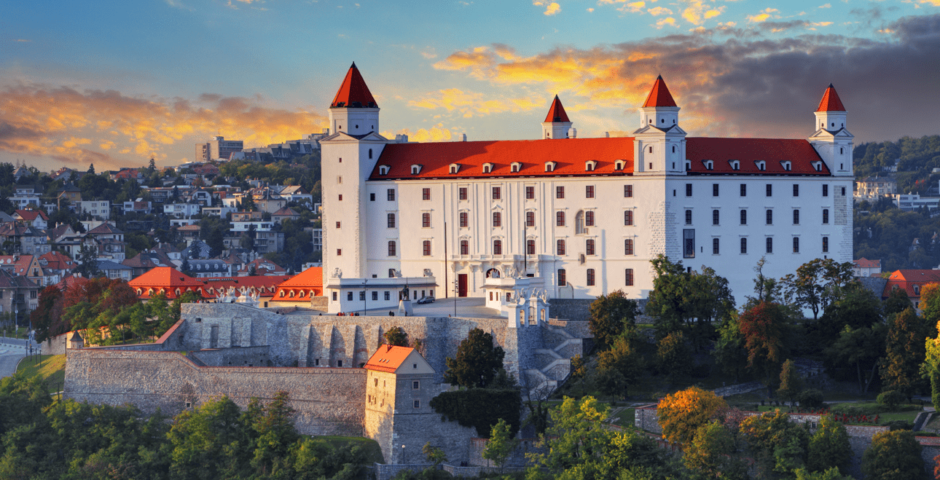European Politics: National parties, European parties, political groups

How do they work?
Who are we going to vote for in June this year (2024)? European political party, Europarty, a political group in the European Parliament? Faithful to its tradition of giving greatly similar names to its structures, like the eternal dilemma of the Councils, the EU does not exactly make it easier for the citizens to understand how party politics work at the European level. But fear not, as this short guide will quickly teach you the ABCs and get you up to speed. Five minutes from now on and you will be able to tell the difference between the factions in the European parliament and what sets them apart from national parties as you know them in your own country.
What is a European political party?
Casually referred to as Europarties, these are a type of political party that operates at the transnational level, meaning that they have input from various member states. They are organised along stances on political and social issues rather than national interests. While there are instances of independent Members of the European Parliament (MEPs) joining a European political party, they mostly consist of groupings of national parties. So, when you vote for your preferred candidate from your domestic party, you indirectly vote for a Europarty, which will then strengthen a political group, which will be explained later. The main functions of a Europarty include campaigning for the European elections, closely coordinating with their affiliated Commissioners and heads of governments in the European Council, and proposing a lead candidate (Spitzenkandidat) to run for the position of president of the Commission.
It is important to note here that as of 2018 Europarties are funded through a contribution from the EU Budget. This covers around 90% of the party’s expenditures, while the remainder is financed by the member national parties and private donations. The funds are reserved for the activities of the Europarty and cannot be used for national parties or specific candidates. The EU has taken steps to address the issue of transparency by requesting that the parties submit an annual report. Furthermore, the annual threshold for donations, above which the donor has to provide proper identification, has been lowered to 1500 EUR. In the aftermath of Qatargate, which saw high-profile MEPs involved in corruption and money laundering, and in the wake of a crucial election, transparency is indeed the needed safeguard of the democratic process.
European political parties vs national political parties
Before delving into their differences, let us acknowledge some similarities between European political parties and national political parties. Both are organised along ideological lines. Both types of parties have their respective leadership and share similar hierarchical structures, with a president, vice presidents and secretary general. The decision-making body is the Congress, although when and how often the Congress meets varies between parties.
The differences between these two types of political parties can best be explained through the differences between the European Parliament and national parliaments as institutions. While national Members of Parliament (MPs) can propose legislation, MEPs cannot. Europarties do, thus, not draft proposals for laws. Furthermore, the voting in Parliament is organised not around the parties but around the political groups, which will be introduced shortly. Hence, the coordination of voting strategies does not happen at the level of the Europarties as opposed to standards in national parliaments where the national parties decide. Lastly, the decision-making process of the European Parliament is organised around a large consensus, thus there is no governing party or coalition. We do not see the traditional relationship between ruling parties and parties in opposition, which is typical for the majority of the national systems.
European political parties vs European political groups
As they were mentioned a few times already, you must be wondering – what are European political groups and what are they for? According to the EU itself, they are the formal parliamentary representation of the Europarties. Or in simpler words, whenever an MEP speaks from the tribune, asks a question, puts forward a motion, or votes in a certain way, they act in the capacity of a member of a political group and not a Europarty per se. The political group is the more important structural unit for procedural matters. If you go on the MEPs page on the Parliament’s website, there is a nice overview of the number of MEPs belonging to the groups from each member state. Furthermore, if you type the name of your local MEP, it will first show you the political group they belong to and not necessarily their Euro party. In that sense, the European political group is closer to what the image of the national party is, not in structure, but in role in the parliamentary proceedings.
In the current European Parliament there are 7 political groups, with the biggest being the European People’s Party (EPP), the Progressive Alliance of Socialists and Democrats (S&D) and Renew Europe. So while some groups only represent one party like the EPP, others like Renew and the Greens/EFA unite members of more Europarties within them. Independent MEPs can also join a political group without belonging to a Europarty, the condition for forming a group is that there must be at least 23 MEPs representing ¼ of the member states, and of course a degree of ideological coherence.
To wrap up, the key differences between European political groups and Europarties lie in their purpose. In parliamentary sessions, MEPs represent their political group. In campaigning, the only actor is the Europarty, as political groups are prohibited from participating in campaigns in any way.
It might be complicated, but how we assemble our clothing to create warm layers for these cold months, is a good analogy for EU party politics. The bottom layer (vest top) is the prospective MEP, who is part of a national party (t-shirt), which is then part of a Europarty (sweater), and the overcoat is the political group.
Non-Inscrits
Non-inscrits is French for non-attached, you guessed it right. These are MEPs that are not attached to any political group. Their stance very much resembles that of independent MPs in national parliaments, as they are not affiliated with a political group, nor to each other. While there are 51 non-inscrits in the current Parliament, which makes them more than the Left (GUE/NGL) political group, their lack of ideological closeness prevents them from forming a new group.
An interesting phenomenon here is that after Brexit, the number of non-inscrits decreased but their ranks were quickly filled by the MEPs from Fidesz, the party of Hungarian Prime Minister Viktor Orban. Fidesz left the EPP group in 2021 after a vote that could have led to it being expelled from the group by the other members of the group itself. This development has followed years of discrepancies between the lines of the centre-right group and the ever-further right-moving Fidesz. Thus, It will be interesting to see their stance in the new European Parliament. If they continue to be non-inscrits they are less likely to gain seats in relevant committees or be appointed committee chairs.
How to approach the European elections?
All that has been said so far should help you in your deliberations before casting the ballot in June of this year. Often European citizens use the European elections to voice their support or punish the respective national party for its performance in domestic politics. Still, it is important to move beyond that. When choosing your candidate, look at which political group they will belong to and what the position of that group is. Is it left/right, liberal/conservative/social democratic, pro-European/Eurosceptic? In most cases, the ideologies of the national parties correspond to those of the European political groups, but it is important to think of the issues the MEPs will be dealing with in a European frame. They will represent your position as a citizen of the EU and not a national of your country, so it is important to enquire about the views of your chosen candidate specifically on European matters.
Iva Dzhunova holds a BA degree in International Relations from the University of Groningen and is now pursuing an MA in European Policy at the University of Amsterdam.
Image: Shutterstock




